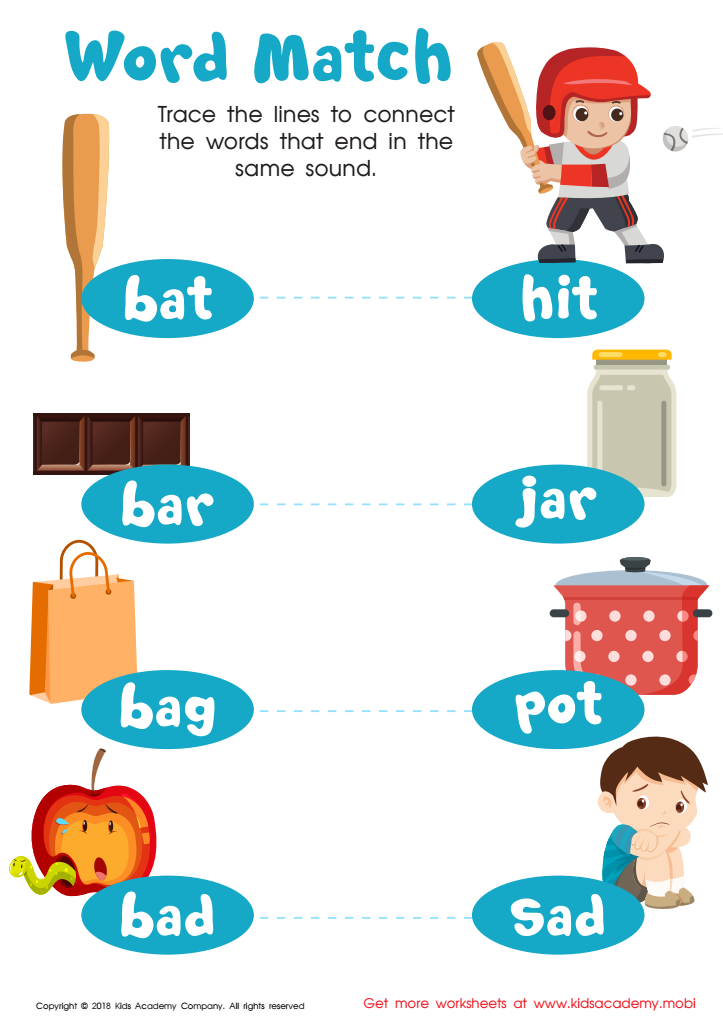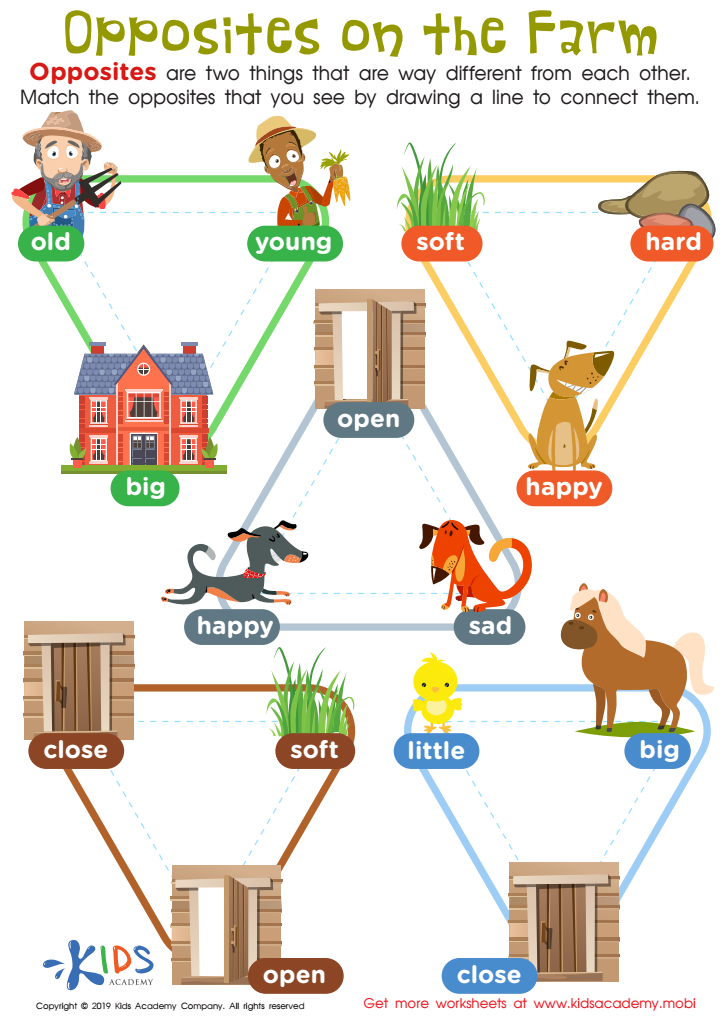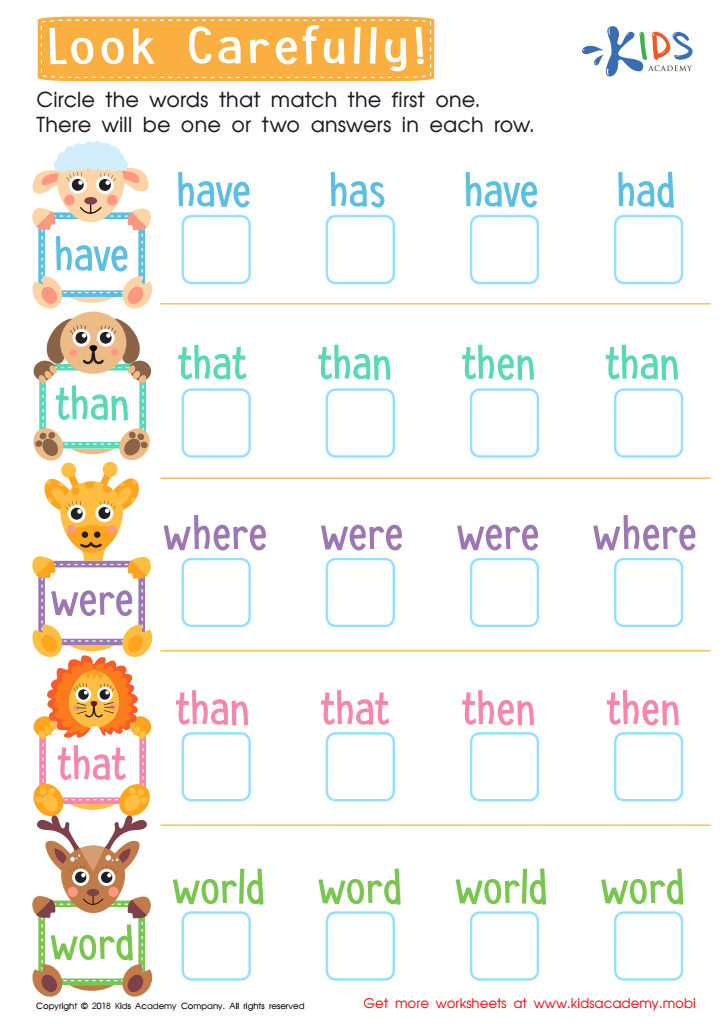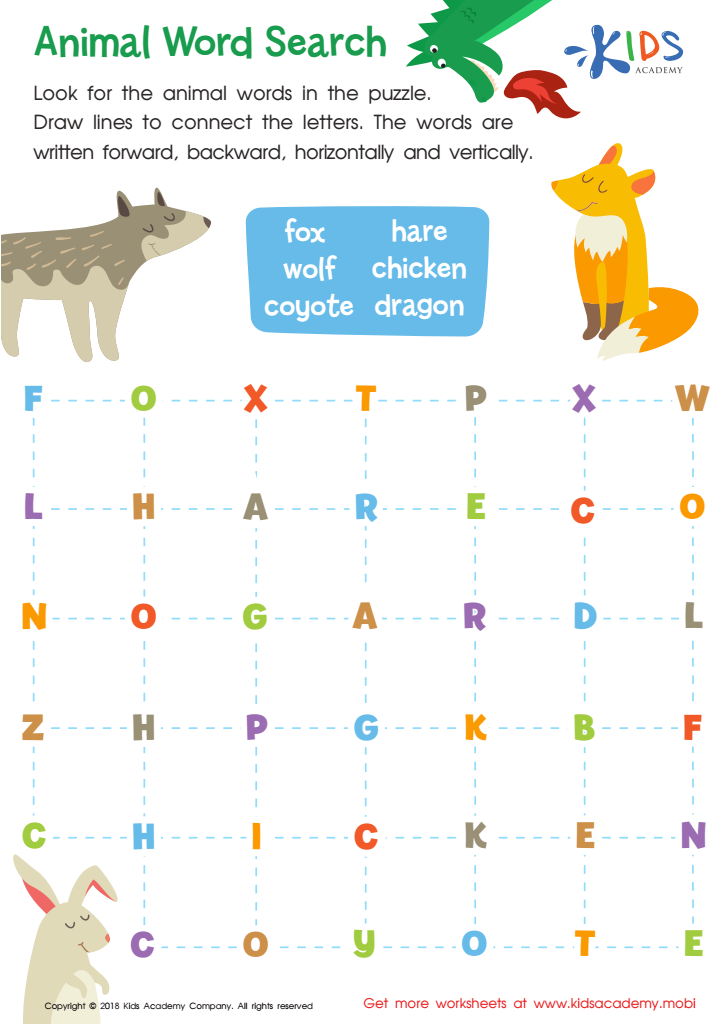Cognitive Development Normal Building Vocabulary Worksheets for 6-Year-Olds
4 filtered results
-
From - To
Enhance your child's cognitive development with our engaging Building Vocabulary Worksheets designed specifically for 6-year-olds. These resources promote language skills, improve comprehension, and expand vocabulary through fun and interactive activities. Children will enjoy connecting words to their meanings and context, fostering critical thinking while learning. Each worksheet is meticulously crafted to align with early learning standards, ensuring that your child's educational experiences are both effective and enjoyable. Perfect for homeschooling or classroom use, these worksheets make vocabulary building a delightful journey. Empower your child's cognitive growth and language fluency today with our expertly designed materials!


Word Match Reading Worksheet


Opposites on the Farm Worksheet


Look Carefully Worksheet


Animal Word Search Worksheet
Cognitive development and building vocabulary are crucial areas of focus for parents and teachers of 6-year-olds, as they form the foundation for future learning and social interactions. At this age, children experience rapid brain growth, refining their thinking, problem-solving, and communication skills, which are primarily fostered through verbal interactions and interactions with the world around them. A rich vocabulary not only enhances a child's ability to express their thoughts and feelings but also provides the tools necessary for comprehending complex ideas and instructions.
When children learn new words, they understand concepts, shape their identity, and engage with peers more effectively. Vocabulary development is directly linked to reading skills, which are essential for academic success. Children who can articulate their thoughts confidently are more likely to participate in discussions, ask questions, and develop a love for learning. Furthermore, strong vocabulary skills support emotional intelligence, enabling children to articulate their emotions and respond thoughtfully to others.
By prioritizing cognitive and vocabulary development, parents and teachers can create engaging environments that stimulate curiosity and comprehension. Investing in these areas fosters a holistic educational experience, empowering children to thrive academically and socially in an increasingly complex world.
 Assign to My Students
Assign to My Students















.jpg)










